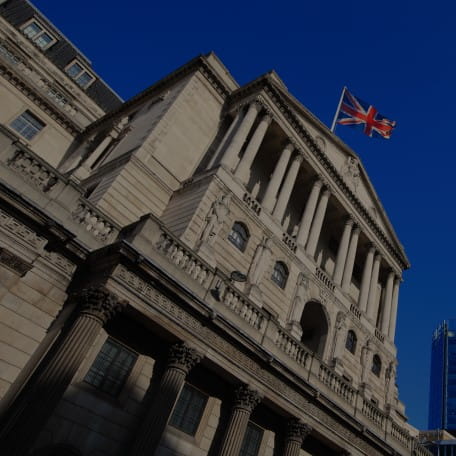Late April saw the UK’s FTSE 100 close at a new all-time high, surpassing its prior peak in February 2023. It has since gone from strength to strength, hitting a latest high of 8,213 on Friday last week. What does this mean for investors?
The Financial Times Stock Exchange 100 Index (the FTSE 100) was launched in 1984 to track the performance of the biggest listed companies on the London Stock Exchange. Its constituents are the 100 stocks with the largest market capitalisation – the total value of their publicly traded shares. The index is market cap-weighted, meaning the largest companies form a greater proportion of the index and have the greatest role in driving its overall level.
Around a quarter of the FTSE 100’s constituents have been constant through its 40 years, including companies such as Barclays, BP, British American Tobacco, Marks & Spencer, Prudential, Rio Tinto, Shell, Tesco and Unilever.
At the end of March 2024, the largest stocks in the index were Shell (8.6% of the index), AstraZeneca (7.9%), HSBC (6.0%), Unilever (5.0%) and BP (4.1%).
Why has the FTSE 100 risen?
The UK stock market’s rise reflects an improvement in investor sentiment which has lifted equity markets globally. Although inflation has proven more persistent than expected so far in 2024, meaning fewer rate cuts from central banks are likely, investors have been impressed with the resilience of the global economy to the more restrictive monetary policy that has been in place for the last couple of years.
In the first four months of 2024, the top 10 contributors to the FTSE 100’s rise include pharmaceutical giants AstraZeneca (+16%) and GSK (+19%), energy mega-caps Shell (+13%) and BP (+12%), banks Barclays (+36%), and HSBC (+17%), consumer goods group Unilever (+11%), miner Anglo American (+36%) and defence groups Rolls-Royce (+35%) and BAE Systems (+21%).
What does an all-time high mean for investors?
The FTSE’s latest push to new all-time highs eclipses its previous summit of 8,014 points in February 2023. This is good news, as it suggests investor confidence in the UK stock market may be coming back somewhat.
Looking over a longer timeframe, the index is up 10% over five years and 20% over ten years (as at 30 April 2024). While this may seem a mediocre investment return, it doesn’t take into account dividends paid to investors. When dividends are included, five- and ten-year total returns for the FTSE 100 rise to much healthier levels of 32% and 76% respectively.
So, while all-time highs are an encouraging sign of investor confidence in the prospects for the UK’s largest businesses, they do not tell the whole story of investment returns.
How does the FTSE 100 stack up internationally?
The FTSE 100 is just one of many major indexes globally to hit all-time highs this year. While the large-cap companies in the FTSE 100 have strongly outperformed UK small companies in recent years, they have lagged international peers – especially when compared to the US.
Over five and ten years, the MSCI World index of developed equity markets has returned 71% and 215%. Much of this is driven by US stocks. The S&P 500 index of the largest stocks on US stock exchanges has returned an even more impressive 89% and 310% over the same time periods.
Some of the blame for the differential has been laid at the door of the index’s composition. While the S&P 500 has been buoyed by the tech-heavy Magnificent Seven stocks – Nvidia, Microsoft, Apple, Amazon, Tesla, Alphabet and Meta Platforms – the UK’s FTSE 100 has a reputation for more mature, ‘old economy’ stocks.
The composition of the index changes over time due to factors such as mergers, acquisitions, and fluctuations in market value, but this mature business footprint can be clearly seen in today’s FTSE 100, with a 20% weight to energy and basic materials stocks (such as BP, Shell, Glencore and Rio Tinto), 20% in banks and other financials (including HSBC, Lloyds Banking Group, Prudential), 15% in consumer staples (the likes of Diageo, Unilever, Reckitt Benckiser, Sainsbury and Tesco) and 13% in pharmaceuticals like GSK and AstraZeneca.
When will the FTSE 100 turn the tide?
The majority of the FTSE 100 constituents are global operators. Over 80% of the FTSE 100’s sales are generated overseas. This internationally diversified profile leaves its underperformance of other major global markets looking even more stark.
While some will point to Brexit frictions or the UK’s recent slip into (marginal) economic recession, the fact remains that the FTSE 100 is primarily exposed to the global rather than domestic economy. Indeed, Liontrust’s Economic Advantage team believes the UK stock market looks historically undervalued relative to global peers:
“An extreme valuation gap persists between UK listed stocks and those listed on other global markets but we are increasingly optimistic that several potential catalysts may converge to turn the tide in favour of UK equities.
“Firstly, inbound M&A activity has been accelerating, especially lower down the market cap scale. While M&A activity is always a double-edged sword, at the very least it does help to crystallise in investors’ minds the level of latent value within share prices at current levels and provides an influx of capital for recipients to redeploy across other holdings where they see such attractive opportunity.
“Secondly, there is the importance of government policy intervention, with increasing recognition of the scale of the issue.
“However the situation evolves, we feel that the clear valuation gap presents a compelling opportunity.”
KEY RISKS
Past performance is not a guide to future performance. The value of an investment and the income generated from it can fall as well as rise and is not guaranteed. You may get back less than you originally invested.
The issue of units/shares in Liontrust Funds may be subject to an initial charge, which will have an impact on the realisable value of the investment, particularly in the short term. Investments should always be considered as long term.
DISCLAIMER
This is a marketing communication. Before making an investment, you should read the relevant Prospectus and the Key Investor Information Document (KIID), which provide full product details including investment charges and risks. These documents can be obtained, free of charge, from www.liontrust.co.uk or direct from Liontrust. Always research your own investments. If you are not a professional investor please consult a regulated financial adviser regarding the suitability of such an investment for you and your personal circumstances.
This should not be construed as advice for investment in any product or security mentioned, an offer to buy or sell units/shares of Funds mentioned, or a solicitation to purchase securities in any company or investment product. Examples of stocks are provided for general information only to demonstrate our investment philosophy. The investment being promoted is for units in a fund, not directly in the underlying assets. It contains information and analysis that is believed to be accurate at the time of publication, but is subject to change without notice. Whilst care has been taken in compiling the content of this document, no representation or warranty, express or implied, is made by Liontrust as to its accuracy or completeness, including for external sources (which may have been used) which have not been verified. It should not be copied, forwarded, reproduced, divulged or otherwise distributed in any form whether by way of fax, email, oral or otherwise, in whole or in part without the express and prior written consent of Liontrust.











